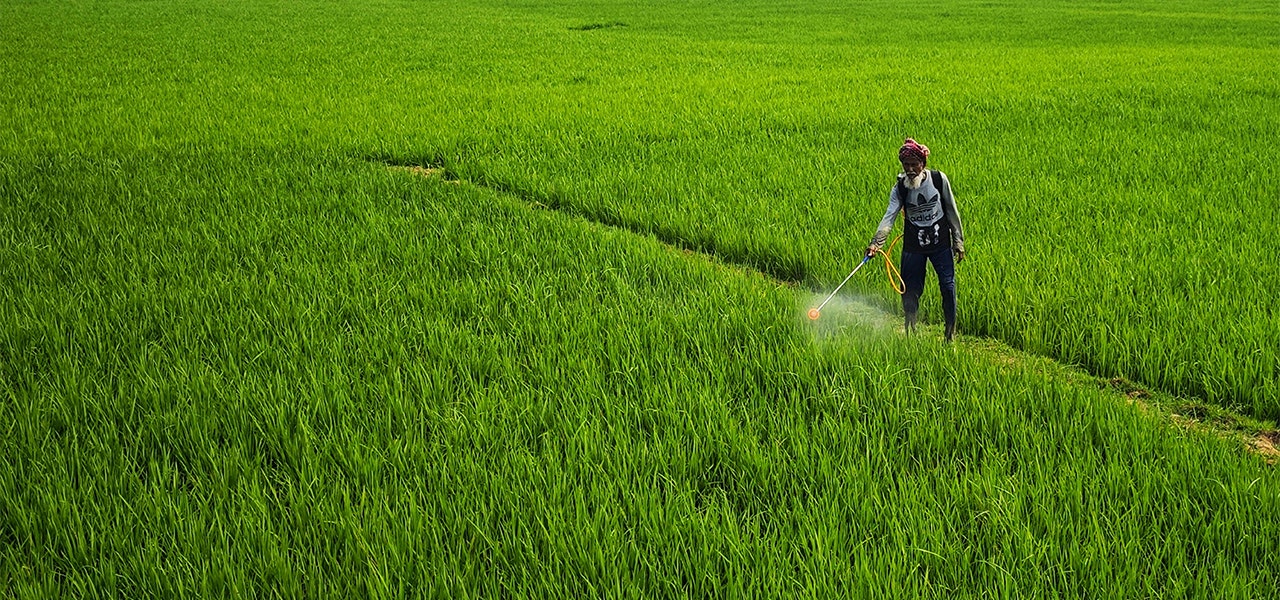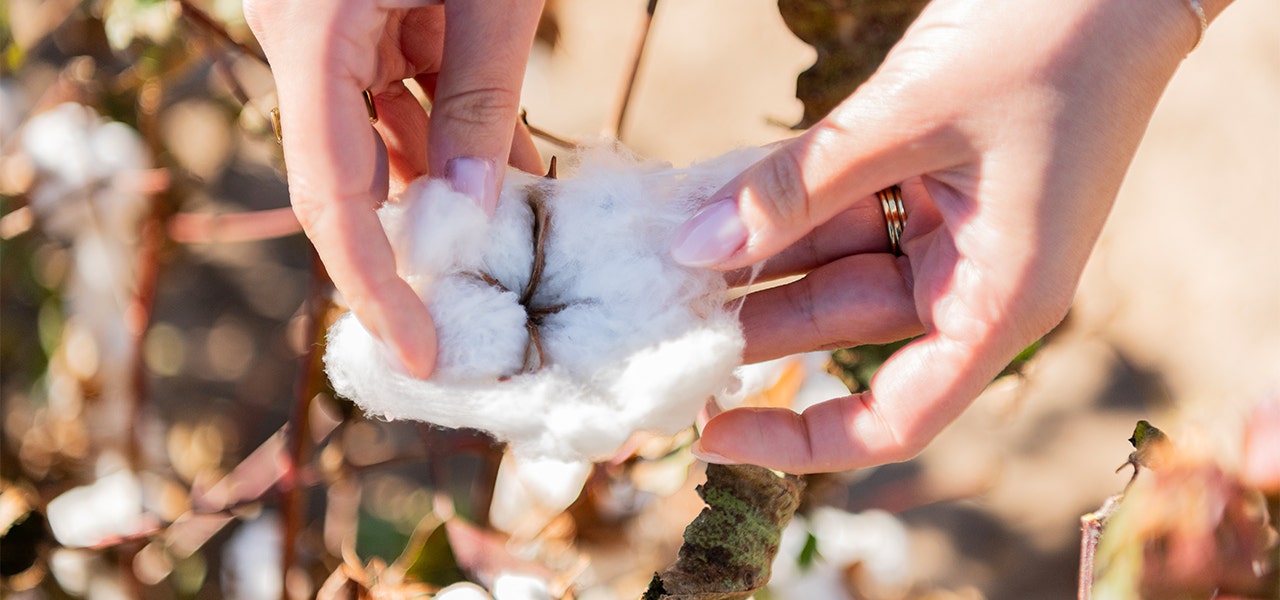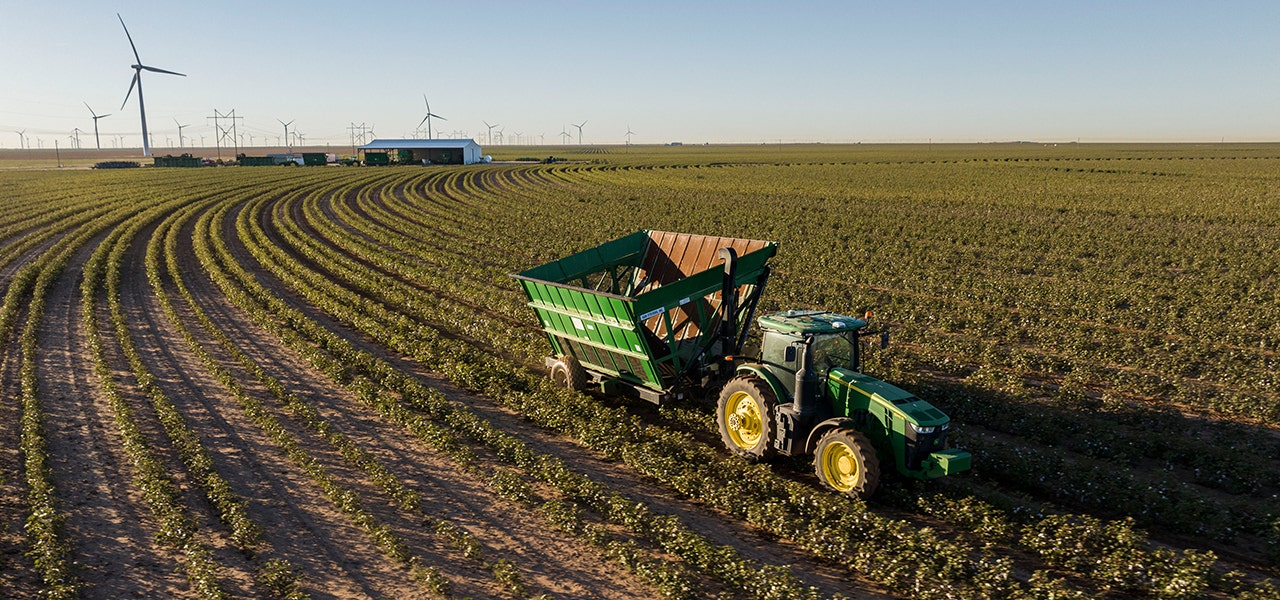When you think of "organic," you probably picture food, and rightfully so. The difference between organic and non-organic food is tangible. You can often see and taste it!
Switching to organic food is a common first step for many consumers. But what about organic textiles? At Naturepedic, we’ve been at the forefront of the sustainable mattress movement for over 20 years, and we know firsthand that organic materials matter just as much in bedding as they do in food. From the clothes you wear to the carpets in your home – and especially the mattress you sleep on – you’re constantly in contact with textiles.
But did you know that conventional cotton is one of the most pesticide-intensive crops on Earth? From environmental effects to human health risks, the differences between certified organic cotton and conventional cotton might shock you.
The Hidden Problems with Conventional Cotton
Cotton is everywhere – your clothes, bedding, towels and even furniture upholstery. But have you ever thought about how that cotton is grown? Conventional cotton is one of the most chemically intensive crops in the world, earning it the nickname "the dirtiest crop on Earth." While cotton itself is a natural fiber, the way it’s farmed and processed often involves toxic pesticides, synthetic fertilizers and excessive water consumption.


Environmental Impacts of Non-Organic Cotton
Conventional cotton farming relies heavily on chemical pesticides and fertilizers, which harm both the environment and human health. Although cotton makes up only 2.5% of global agricultural land, it accounts for 16%-25% of the world’s pesticide use. These toxic chemicals contaminate soil, water supplies and the air, endangering wildlife and contributing to biodiversity loss.
Water consumption is another major issue. Producing just one non-organic cotton T-shirt requires over 2,700 liters of water – enough for one person to drink for nearly three years. Large-scale cotton farming depletes natural water sources, contributing to drought conditions in many cotton-growing regions. Additionally, conventional cotton farming contributes to greenhouse gas emissions, particularly through synthetic fertilizers that release nitrous oxide, a potent climate-warming gas.
Health and Ethical Concerns
Beyond its environmental impact, conventional cotton raises serious health and ethical concerns. Many conventional cotton fabrics retain pesticide residues, which can trigger skin irritation, allergies and even long-term health issues linked to hormone disruption and cancer – and children are especially sensitive.
For farmers, exposure to these chemicals is even more dangerous. Many agricultural workers in developing countries face unsafe working conditions, often with little protection from toxic substances. Low wages, excessive working hours and even child labor are persistent issues in the conventional cotton industry.
With these concerns in mind, it’s clear that conventional cotton comes at a high cost. The good news? There’s a better alternative: organic cotton.
What Is Organic Cotton?
Unlike conventional cotton, certified organic cotton is grown without synthetic pesticides, synthetic fertilizers or genetically modified seeds, per the Global Organic Textile Standard (GOTS). Instead, organic farmers use natural pest control, crop rotation and soil enrichment techniques to maintain healthy crops while also minimizing environmental impact.
At Naturepedic, we always say: Nothing is organic unless it’s certified organic. Many brands use misleading greenwashing claims to make products sound more eco-friendly than they actually are. To ensure your cotton is truly organic, look for GOTS certification – the highest standard for organic textiles. If the cotton is grown in the U.S., USDA organic certification is another trustworthy label to look for.
3 Ways Organic Cotton Is Better for the Planet
Have you heard conventional cotton referred to as "the dirtiest crop on Earth"? This isn’t just due to poor working conditions but also because of its harmful environmental impact. Here’s how organic cotton makes a difference:


1. No GOTS-Prohibited Pesticides
Conventional cotton farming relies on massive amounts of pesticides – accounting for up to 25% of global pesticide use annually! These toxic chemicals pollute:
- Air quality
- Water supplies
- Soil health
- Wildlife and ecosystems
Why? Cotton is highly susceptible to pests, particularly the bollworm, aphids and whiteflies, which can significantly reduce crop yields. Its soft, fibrous structure makes it an easy target for insect infestations, requiring extensive pest control to maintain productivity. Additionally, cotton is grown in warm climates where pests thrive year-round, further increasing the need for intervention.
While conventional cotton farming often relies on synthetic pesticides to combat these threats and ensure large-scale production, organic cotton is grown using natural pest control methods like crop rotation and beneficial insects. Fewer synthetic chemicals also means fewer greenhouse gas emissions, too, helping to combat climate change.
2. Less Water and Energy Usage
Cotton is a water-intensive crop because it requires consistent moisture throughout its growing cycle, particularly during germination and the boll formation stage. Also, all those pesticides we discussed earlier? How do you think they are distributed to crops? Yep, you guessed it – water. Most pesticides are mixed with water to create a spray solution that can be applied evenly across crops.
Cotton crops either rely on rainwater (dryland farming) or require irrigation. The good news? Up to 80% of organic cotton is rain-fed, meaning it uses far less water from natural ecosystems compared to conventional cotton. In fact, a Textile Exchange study titled “Life Cycle Assessment of Organic Cotton Fiber” found that organic cotton 91% reduced blue water consumption.
That same study also showed that organic cotton farming consumes significantly less energy – 62% reduced primary energy demand – concluding that by causing less environmental damage, organic cotton is a more sustainable choice than conventional cotton.
3. Protects Biodiversity
Because organic cotton farmers don’t use genetically modified organisms (GMOs), they help protect biodiversity by preserving the natural genetic diversity of plant species and preventing the dominance of a few genetically engineered strains.
GMO crops are often designed for high-yield, large-scale monoculture farming, which can reduce habitat variety and displace native plant species. This, in turn, threatens pollinators, soil microbes and other wildlife that depend on diverse ecosystems. Additionally, GMO crops may cross-pollinate with wild relatives, potentially altering natural plant populations and reducing their resilience to pests, diseases and climate change.
Healthy, biodiverse ecosystems, on the other hand, support:
- Pollinators like bees and butterflies
- Earthworms and beneficial insects
- Diverse plant species
Biodiversity is essential for clean water, food security and a stable climate – and organic farming helps to preserve it.
Is Organic Cotton Healthier for You?
Absolutely. The toxic pesticides used in conventional cotton don’t just harm the environment – they also pose serious health risks. Seven of the top 15 pesticides used in cotton farming are known carcinogens, according to the U.S. Environmental Protection Agency (EPA).


Long-term pesticide exposure has been linked to:
- Birth defects and reproductive issues
- Weakened immune systems
- Nervous system disorders like Parkinson’s
- Alzheimer’s disease and cognitive decline
Aside from pesticides, organic cotton is also healthier as it is not treated with GOTS-prohibited harsh bleaches and dyes, making it a safer, healthier choice for your home and family.
How Ethical Cotton Supports Farmers and Fair Wages
Beyond environmental concerns, conventional cotton farming has major ethical issues. Many cotton farmers – especially in developing countries – face:
- Unfair wages
- Dangerous exposure to toxic chemicals
- Poor working conditions
- Child labor exploitation
In many regions, farmers are trapped in cycles of debt due to the high costs of chemical fertilizers and genetically modified seeds. Organic cotton farming, on the other hand, promotes fair trade practices and provides farmers with better financial stability. Organic farmers use natural methods that reduce dependence on costly synthetic inputs, allowing them to reinvest in their communities and secure a healthier future for their families.
Organizations like the Global Organic Textile Standard ensure that organic cotton farmers receive fair wages, work in safe conditions and are not exposed to hazardous chemicals. By choosing certified organic cotton, you’re helping to build a more equitable supply chain that values both people and the planet.
Quality Differences in Organic vs. Conventional Cotton
One of the most noticeable distinctions between organic and conventional cotton is quality. Because organic cotton fibers are not exposed to harsh chemicals or processing agents, they retain their natural strength and last longer. Conventional cotton, on the other hand, is often treated with synthetic softeners and chemicals that can break down fibers, leading to premature wear and tear.
Organic cotton is also known for its luxuriously soft texture, as its fibers remain intact and unweakened by chemical processing. Those with sensitive skin, allergies or respiratory conditions often find organic cotton to be less likely to cause allergic reactions or skin irritations when compared to conventional cotton, which may retain residues from pesticides, dyes and chemical softeners.
Final Verdict: Organic Cotton Is Better
That little word – organic – makes a big difference, huh? The next time you see a "100% cotton" label, take a closer look. Is it GOTS certified? Is it truly organic? Choosing organic cotton is a healthier choice for you, for farmers and for the planet, too.
At Naturepedic, we follow a Farm to Bed philosophy – learn more about our US organic cotton farmers and our shared mission.
 BABY
BABY  KIDS
KIDS  ADULT
ADULT  LEARN
LEARN  STORES
STORES 



